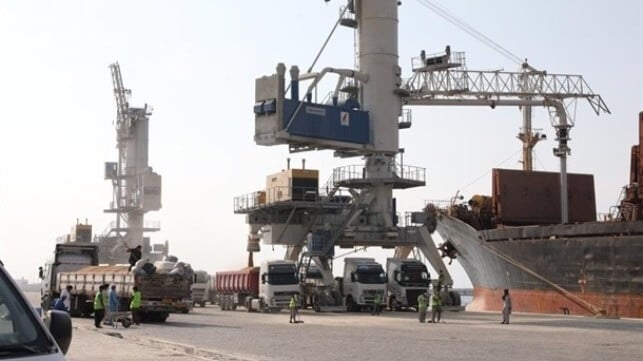U.S. Revokes Sanctions Waiver on Iran’s Chabahar Port

The U.S. government has revoked a sanctions exemption policy on Iran’s Chabahar port, a move seen as likely to affect the India-led development in the facility. In the past few months, the U.S. has declared a maximum pressure policy to isolate the Iranian regime, with tighter sanctions introduced against the country’s shipping sector. However, due to an exemption policy introduced by the U.S in 2018, Chabahar port has been insulated from the sanctions affecting the rest of Iran’s infrastructure. At the time, the exemption was to facilitate Afghanistan reconstruction.
During the same year, the Indian Ports Global Limited (IPGL) took over the operations of Chabahar port. This deal was formalized last year through a 10-year contract between IPGL and the Port & Maritime Organization of Iran. Under the agreement, IPGL committed to invest $370 million in the development of the port.
Located on Iran’s south-eastern coast along the Gulf of Oman, Chabahar port is a strategic investment for India as it targets to boost regional trade with central Asian countries, including Afghanistan. In addition, the Chabahar operations have seen India and Iran boost ties. Early this month, the two countries held diplomatic consultations in Tehran. The talks centered on advancing the Chabahar port project as well as the International North-South Transport Corridor, a multimodal route envisaged to connect the Indian Ocean and Persian Gulf to the Caspian Sea.
The U.S. move to end its sanctions waiver on Chabahar port will affect India’s regional connectivity plans. “The Secretary of State has revoked the sanctions waiver issued in 2018 effective September 29, 2025. Once the revocation is effective, persons who operate the Chabahar port may expose themselves to sanctions under the Iran Freedom and Counter-Proliferation Act (IFCA),” said the U.S Department of State.
Under India’s control, Chabahar port container throughput has grown immensely - from 6,000 TEU to over 90,000 TEU in the last two years. The ongoing modernization of the facility is now uncertain, especially if India abandons the project. Further, the Chabahar project presents a diplomatic conundrum for India as it is trying to balance its relations between U.S. and Iran. India’s trade minister Piyush Goyal is expected to visit Washington this week to progress tariff negotiations. Last month, the Trump administration doubled tariffs on Indian imports to 50%, which India hopes to reduce in scheduled negotiations this week.
Grain suction boom at Chabahar Port (AgriculturalEngineer96/CC BY SA 4.0)
